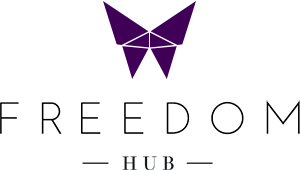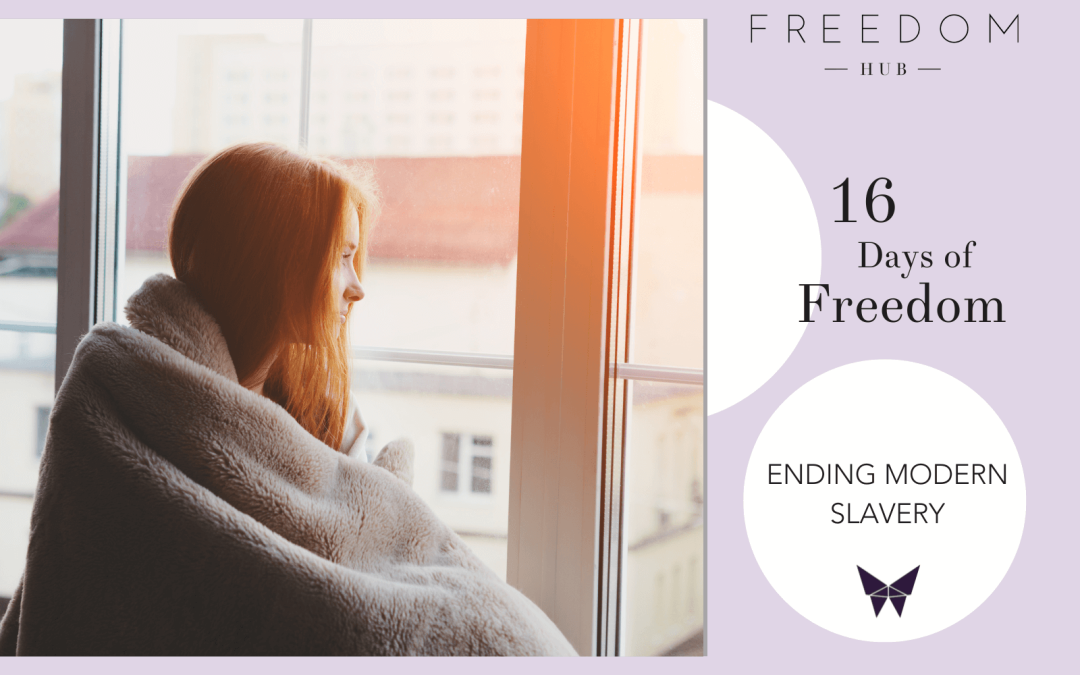Day 9 – Why Women Are More Vulnerable to Modern Slavery
An estimated 50 million people worldwide are trapped in Modern Slavery, an increase of 10 million since previous estimates in 2016. Modern slavery is a crime that affects every industry worldwide. The term “Modern slavery” refers “to situations of exploitation in which a person cannot refuse or leave because of threats, violence, coercion, deception, or abuse of power” (Walk Free).
It is illegally taking ownership of another person through violence, coercion, fraud or abduction. Modern slavery can take many forms, including human trafficking, forced domestic servitude, sexual exploitation, forced labour, child labour, debt bondage, forced marriage and many others (ILO).
Modern slavery is a violation of Human Rights. It is an illegal act punishable in Australia under the Criminal Act Code (1995). According to the International Labour Organisation (ILO), modern-day slavery is the second largest criminal activity in the world and is a $150 billion-a-year industry.
Modern Slavery is a Gendered Issue
Although modern slavery affects everyone, it is a gendered issue. Women and girls are more vulnerable to this crime.
- 1 in 130 women and girls globally is living in modern slavery.
- 71% of victims are women and girls (Walk Free).
There are more women and girls trapped in slavery worldwide than there are people in Australia.
Many issues make women more vulnerable to slavery, but most of all, modern slavery results from a power imbalance. Gender inequality remains a significant power imbalance around the globe. This stems from cultural practices, laws and historical gender roles.
Reasons Women and Girls are Vulnerable
Here are several reasons that women and girls are more vulnerable to modern slavery:
- In most countries, fewer girls attend school than boys, leading them to a greater risk of poverty.
- In many cases, women and girls are forced to seek work outside the home due to poverty, gender-based violence and discrimination.
- Many women and girls do not have access to education and the development of skills to find safe employment.
- Many women and girls also are not given autonomy over what work they will do, where they will work and how they will travel to work. This makes them especially vulnerable to exploitation by recruiters and employers whom they believe will help them find work.
- Worldwide laws continue to put women at risk. Many countries have laws preventing women from owning land and assets, travelling freely or working without their husbands’ permission.
- In some parts of the world, many young girls are victims of forced marriages in exchange for payment to their families or cancellation of debt.
- It is also essential to add that women in marginalised groups, such as people with a disability, LGBTQIA+, or ethnic minorities, experience even further risk of modern slavery.
Vulnerable Women In Australia
- 1 in 5 Australian women have experienced sexual violence.
- Australian women are most likely to experience physical and sexual violence at home, at the hands of a male current or ex-partner.
- Of women who had children in their care when they experienced violence from an ex-partner, 68% reported that the children had seen or heard the violence.
Read More: Violence against women & girls
What is the Solution?
“A systemic and integrated approach to tackling the exploitation of women and girls in modern slavery requires cross-sector, cross-regional and international partnerships.” Plan International UK
To ensure The Freedom Hub is a part of the answer, our CEO sits on various State, National, Pacific Regional and International Modern Slavery Committees. We cannot solve this problem alone.
“I believe we could easily be the first country in the world to have no slavery, but we should also be doing all we can as a nation to help our poorer neighbouring nations. We have the wealth and resources to do a lot more. We have played a major part in exploiting these nations in the past and present, so we should be helping now in their time of need.” Sally Irwin CEO
As a part of this series, we ask all women to share these blogs to raise awareness. Awareness changes culture. Awareness creates funding opportunities for NGOs working in this space. So, on Facebook and LinkedIn, please hit ‘share’. On Instagram, share this to your story. Let’s bring this crime to light and help end modern slavery.
Want to Make a Difference NOW?
Here are just a few ways you can get involved and support victims/survivors of modern slavery:
- Follow Our Cause: https://facebook.com/freedomhuborg
- Read our News: https://linkedin.com/company/the-freedom-hub
- Gift a Survivor for Christmas: https://bit.ly/survivor-gift
- Host a High Tea for Humanity in the first week of December: [email protected]
- Join a volunteer Team in your Local area: https://bit.ly/TFHvolunteer
- Come to our Freedom Fair Ethical Christmas Market: thefreedomhub.org/freedom-fair
- End of Year Giving – purchase from our shop and know that 100% of the profits from your purchase support victims of violence in slavery in our survivor school.
Partner in our Community
Help raise awareness and join a local volunteer team, contact us here.
Or if you would like to get our monthly update, opt-in here.
If you would like to support a survivor, donate here. (tax-deductible)
If you need help or know of someone in this situation, call us: 1800Freehub (1800 3733482)

